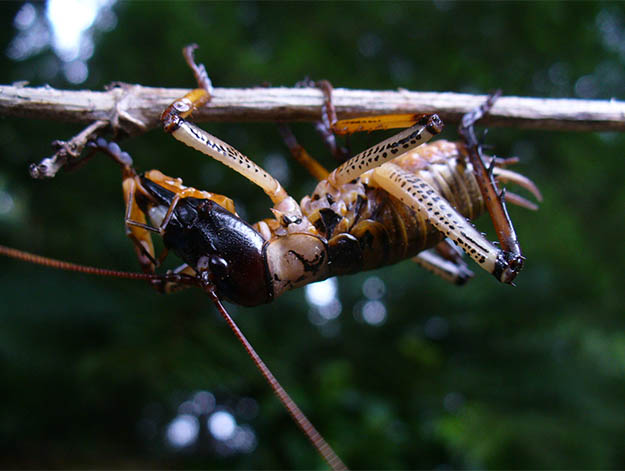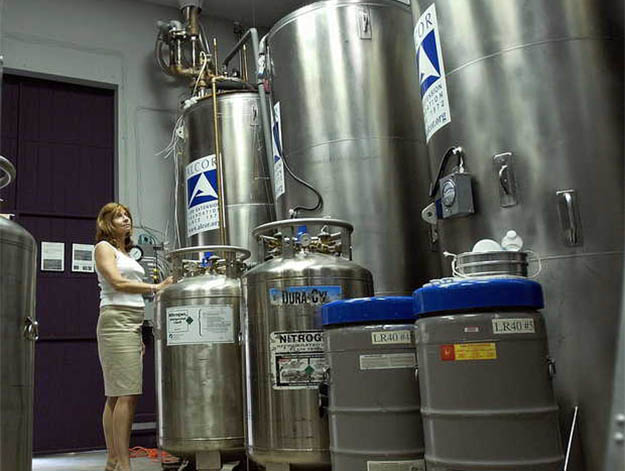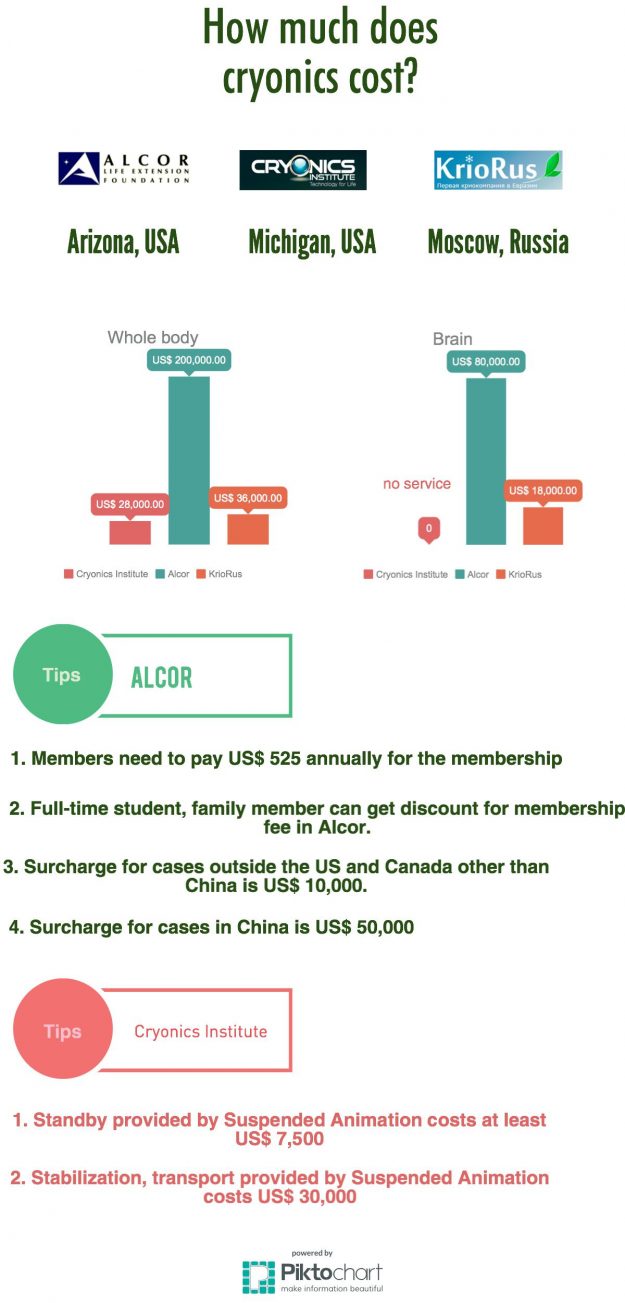Do you still think cryonics only exists in a piece of science fiction? According to the statistics of two big cryonics companies, 346 people have already been cryonically frozen waiting to be waken up when the future technology have a cure for them. How feasible is the cryonics and is it ethical?
.embed-container { position: relative; padding-bottom: 56.25%; height: 0; overflow: hidden; max-width: 100%; } .embed-container iframe, .embed-container object, .embed-container embed { position: absolute; top: 0; left: 0; width: 100%; height: 100%; }
A 14 year old British girl died of cancer was allowed by the high court to be cryonically frozen before her death in October 2016.
About eight days after her death, her body arrived at the the Cryonics Institute in the US packed in dry ice. She was then cooled to liquid nitrogen temperature and placed in cryostat for longterm cryonic storage.
In her letter to the court she has written: “I have been asked to explain why I want this unusual thing done. I’m only 14 years old and I don’t want to die, but I know I am going to. I think being cryo‐preserved gives me a chance to be cured and woken up, even in hundreds of years’ time. I don’t want to be buried underground. I want to live and live longer and I think that in the future they might find a cure for my cancer and wake me up. I want to have this chance. This is my wish.”
Mr Justice Peter Jackson made it clear in the judgement that the case of JS does not set a precedent for other cases.
Now there are apparently three major cryonics companies across the world. Two are in the US and one in Russia.
.embed-container { position: relative; padding-bottom: 56.25%; height: 0; overflow: hidden; max-width: 100%; } .embed-container iframe, .embed-container object, .embed-container embed { position: absolute; top: 0; left: 0; width: 100%; height: 100%; }
“Cryonics is complete fantasy for the entire human body with current technology. ”
Dr Alan Watson, reader in anatomy and neuroscience, School of Biosciences, Cardiff University says:
“There is not only the challenge of trying to freeze a large body without the cells being destroyed by ice crystal formation but also the question of the effect this could have on the function particularly of the nervous system; not just whether it would work at all but also what effect it would have on memory, mental state etc.”
According to Dr Watson, it is almost impossible to find a cure for a dead body. Because when people treat diseases, they introduce drugs which alter metabolism. In another word, people introduce drugs which allow the living system to reconfigure and to self repair and that’s what all medicine is about. If the tissue is dead, then it can’t self repair.
He says: “The death due to disease is not just death. The person has died due to a whole sequence of events, not just one cause. So there is no single fix.”
Some animals have internal mechanisms to resist freezing, but not necessarily of all of their water. One of the largest is the New Zealand Weta (a type of grasshopper) which is a couple of centimeters long. But it will always be much more difficult to achieve in larger animals.

Dr Watson thinks that even cryonic preservation is ever possible for humans, the technology currently being used is so crude and untested that it will not be adequate.
He thinks If it was possible, it would be demonstrable on laboratory mammal species which would theoretically be easier because of their size.
“A hope was being offered to the girl, but nobody actually analysis weather it had any feasibility. They are offering a treatment in which there is no prospect of success. There is no evidence for it. There are so many questions simply not answered. ” says Dr Watson: “The most charitable interpretation of the motivation of companies that promote this is that it is based on self-delusion.”
“It is at best naive, at worst foolish. ”
Matt Bownds, Minister for Pontprennau, Pastor at the Highfields church says:
“The Christians historically have not at all been against medical intervention using science to prolong life or to improve life. But I think most Christians would see this as a different thing. Because they would argue that death has actually occurred.”

Mr Bownds thinks that Christians would not necessarily argue that freezing a dead human body is wrong. He thinks the issues lies in the promise that cryonics seems to hold out that although death has occurred, life can be restored.
The Christian faith along with many other religions is the inevitability in this world of physical death.
Mr Bownds thinks that’s what cryonics seems to argue against. Cryonics seems to hold out the promise that one day there will be a world free of death.
“I’d have to disagree with that as a Christian that mankind is ever going to eradicate death, because what the Bible says is that death has come into the world as a result of mankind rebelling against God. That is why we all ultimately face physical and spiritual death. And only God can reverse that.” says Mr Bownds.
“Cryonics obviously gave the girl a measure of comfort before she died. But the reason that I couldn’t say to the 14 year old girl “ok go ahead and do it” is that it’s a false comfort. She might feel comforted in the hours and days leading up to her death, but because the Christians believe that after death the soul continues. Then I couldn’t have hold out that false hope to her.”
According to Mr Bownds, these cryonics organizations seem to define human life, human personality and who you are as fundamentally what happens in your brain. He as a Christians argues that is superficial because that is the physical part of who you are. He believes that the soul and spirit is something different.
“Our soul which separates from what happens in our brains is part of our personality, just like our body is part of who we are.” says Mr Bownds.
He thinks cryonics is holding out false hope to people, “Death is inevitable, and it’s only God who can reverse that. For mankind to trying to do it is at best naive, at worst foolish.”
“Potentially cryonics does change in a way what it is to be human. “
Dr Andrew Edgar, reader in philosophy, Cardiff University says:
“If it works, it will make a big difference to how we thought about our lives. Because in a way, we obviously think we have a life which is contained in one discrete time. Suddenly we have fragmented life.”
He thinks that raises questions. For example, if it works, are you the same person when you come back to life?
“How are you going to deal with the trauma of waking up?” says Dr Edgar, “If they have cured you. You’ve undergone a very sophisticated medical treatment. Your body may be part machine. You might experience the world very differently through this new body.”

In this girl’s case, Dr Edgar thinks the core ethics works here is the autonomy of the patient. If the person decides it is for them, if it helped the girl cope with the confrontation of death, if it made sense of those final months of her life, then maybe it has actually done the medical work we want from it.
He thinks it is dangerous to focus just on the technology. When people see medicine nearly like an application of technology, they think medicine is about really defeating death.
“A more humanistic way of seeing medicine is the medicine is about making us understand what it is like to be in a mortal fragile body and how to deal with it.” says Dr Edgar.
Dr Edgar thinks that if we take it more seriously, not just a fed to the rich people, then it need to be brought to the regulatory system. According to the basic medical ethics the idea of informed consent, patients need as much information about what is going to be possible and that need to come from reliable source which can be an independent regulator, not a self-interested provider.

